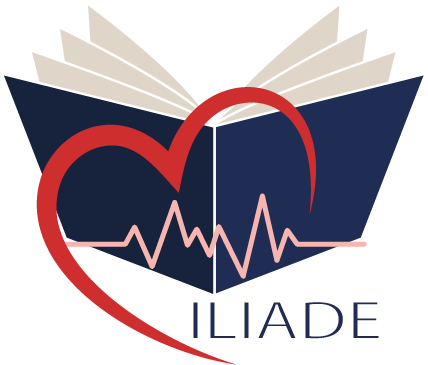
Funding : PREPS
Project leader : Anne-Marie Schott
Manager : Hospices Civils de Lyon
Background :
Health literacy is particularly important in patients with heart failure because this condition requires complex care management and frequent interactions with health services and professionals. Low health literacy among heart failure patients is associated with decreased medication adherence and increased re-hospitalizations and mortality.
Our goal is to evaluate the impact of a personalized educational intervention on the self-care capacity of heart failure patients with a low level of health literacy hospitalized for cardiac decompensation. We will evaluate the impact on self-care abilities 30 days after their discharge from hospitalization and on secondary endpoints at 30 and 90 days after their discharge.
We co-constructed this intervention with the participation of patients, caregivers and healthcare professionals based on the Ophelia methodology. This method is recognized for the development of interventions in patients suffering from chronic illness with a low level of health literacy. Steps 1 and 2 of phase I of the Ophelia method were conducted using a mixed methodology (P-Iliade study). Step 3 of phase I of the Ophelia method was carried out through the implementation of collaborative participatory research in the form of several workshops, integrating patients, caregivers, and health professionals. These workshops provided a basis for developing an intervention corresponding to the needs of heart failure patients.
From these elements and the literature, a conceptual model of the intervention was developed (phase II of the Ophelia methodology) aimed at modeling the underlying mechanisms and the different factors on which the intervention should intervene to improve the self-care abilities of patients. This model made it possible to develop the intervention program and educational tools. These were then validated with heart failure patients and professionals.
The impact of this intervention will be evaluated in a randomized controlled trial in two parallel groups, comparing the effect of the intervention to standard care with individual randomization. A qualitative study in the form of semi-directed individual interviews with a sample of patients, caregivers and healthcare professionals will be carried out in parallel. Throughout this project, we will follow a participatory research approach.
The primary endpoint is heart failure self-care capacity measured using the SCHFI (Self-Care Heart Failure Index) questionnaire 30 days after discharge from hospitalization. Secondary endpoints include self-care capacity 90 days after hospital discharge, medication compliance, patient quality of life, sense of self-efficacy, emergency room visits or unscheduled hospitalizations as well as the knowledge and skills of patients regarding their illness and their treatments. The acceptability, feasibility and implementation of the intervention will also be assessed.
Key words : health literacy, heart failure, self-management
Publications related to the project :
1. Perrin A, Damiolini E, Schott AM, Zermati J, Bravant E, Delahaye F, Dima AL, Haesebaert J. Considering health literacy in cardiovascular disease management: a qualitative study on healthcare professionals' and patients' perspectives.
BMC Health Serv Res. 2022 Sep 5;22(1):1121.
doi: 10.1186/s12913-022-08455-8. PMID: 36064395; PMCID: PMC9446730.
2. Perrin A, Abdalla G, Viprey M, Delahaye F, Mewton N, Ovize M, Sebbag L, Bochaton T, Dima AL, Bravant E, Schott AM, Haesebaert J. Prevalence of low health literacy levels in decompensated heart failure compared with acute myocardial infarction patients.
ESC Heart Fail. 2021 Apr;8(2):1446-1459.
doi: 10.1002/ehf2.13230. Epub 2021 Feb 5. PMID: 33544458; PMCID: PMC8006735.
3. Perrin A, Siqueira do Prado L, Duché A, Schott AM, Dima AL, Haesebaert J. Using the Brief Health Literacy Screen in Chronic Care in French Hospital Settings: Content Validity of Patient and Healthcare Professional Reports.
Int J Environ Res Public Health. 2020 Dec 25;18(1):96.
doi: 10.3390/ijerph18010096. PMID: 33375574; PMCID: PMC7795429.
